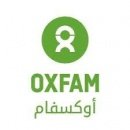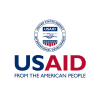Vegetable Import Substitution and Domestic Market Developmen...
Background:
The vegetable subsector is one of the most important in the Palestinian agricultural sector. The area of vegetable cultivation constituted 18.45 percent of the total cultivated area in Palestine. In terms of consumption, vegetables, legumes, and tubers are the third most consumed food by Palestinian households after meat, bread, and cereals, with the average household spending 14.5 percent of total food expenditure on these products.
Despite having a strong vegetable export sector, Palestine remains heavily reliant on imports to meet local consumption needs. According to the Palestinian Central Bureau of Statistics (PCBS, 2025), the total value of plant-based food imports—including vegetables, legumes, and similar commodities—was approximately $41.87 million in 2023, while exports stood at $24.95 million. While these figures are aggregated and not limited strictly to vegetables, they still reflect a significant trade deficit of nearly $17 million, underscoring the structural imbalance between domestic production and food consumption needs (Palestinian Central Bureau of Statistics [PCBS], 2025).
The 2023 trade data revealed that Israel alone accounted for over $21 million in imports, making it the dominant supplier and highlighting geopolitical dependencies. Other key import partners included Egypt ($5.2 million), the Russian Federation ($4.4 million), and Türkiye ($4.2 million) (PCBS, 2025).
Import substitution opportunities are notably concentrated in high-consumption vegetables. Based on 2023 PCBS data, the most significant imports include:
These examples are illustrative. The consultant is not limited to these crops and is encouraged to propose alternatives based on feasibility, market demand, and production potential.
● Dried vegetables– $1.1 million
● Seed potatoes – $530,000
Preliminary indications suggest that many of these crops may be technically suitable for Palestinian agro-ecological zones; however, their viability for local production should be confirmed through detailed feasibility analysis considering water availability, input costs, climate resilience, and farmer readiness.
Meanwhile, the export structure remains heavily dependent on the Israeli market, which absorbs over 94.5% of Palestinian vegetable exports (~$23.57 million). This lack of export market diversification further necessitates the development of resilient local production systems.
Several barriers underpin this import dependency, including high input costs, seasonal gaps, land and water constraints, limited seed availability, and market infrastructure deficits. Some imported vegetables could be feasibly cultivated locally, thereby improving food sovereignty, reducing costs, and enhancing livelihood opportunities for Palestinian farmers.
Oxfam seeks a qualified consultant to undertake a research study assessing the prospects of substituting key vegetable imports through expanded domestic production in the West Bank. The study will focus on the West Bank to ensure geographic specificity, feasibility, and alignment with implementation priorities in this context.
Objectives:
The consultant will be responsible for:
Scope of Work:
The consultant’s scope of work will include, but not be limited to:
Desk Review:
● Review available data and literature, including PCBS statistics, Ministry of Agriculture reports, customs records, and previous market assessments.
● Identify high-volume imported vegetables based on quantity, value, and seasonality, drawing on 2023 PCBS trade data and other relevant sources as appropriate.
Stakeholder Consultations:
● Conduct interviews with the Ministry of Agriculture, farmers, cooperatives, agribusinesses, and importers.
● Hold focus group discussions with farmers to understand production challenges and opportunities.
Feasibility Assessment:
● Assess the suitability of growing selected imported vegetables locally based on land, water, input availability, and technical capacity.
● Compare the cost of local production with current import prices to evaluate competitiveness.
● Analyze farmer readiness and ability to scale production.
Market and Consumer Analysis:
● Gather basic insights into consumer preferences and demand for selected vegetables.
● Explore how product quality and price affect the acceptance of local alternatives.
Inclusion and Equity Considerations:
● Identify opportunities to involve women and youth in production, processing, or marketing.
Recommendations:
● Propose entry points and intervention strategies to support local production, including improved practices, irrigation, post-harvest handling, and market access.
● Suggest partnerships between farmers, cooperatives, and the private sector.
Provide simple policy or incentive recommendations to support vegetable import substitution.
For The Full TOR please Click HERE




















